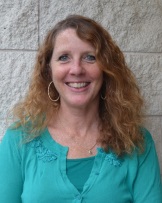
Marketing Director
The Civil Rights Movement could not have enjoyed a more eloquent spokesperson than the Rev. Martin Luther King Jr.
His “I Have a Dream” speech remains as relevant, and referenced, today as it was when he made it more than 50 years ago. The challenge when discussing race relations in today’s society, is to elevate that conversation, to move from rhetoric to results. The former inflames, the latter advances.
It’s all in the narrative, according to Packer Hall of Famer and current Northeast Wisconsin resident Kabeer Gbaja-Biamila.
“I have black kids. An ex-teammate once asked me, ‘Have you ever thought twice about raising your kids in this environment where they’re the minority?’ I have a hard time relating to that discussion,” he said. “I’m getting to the point where when I fill out a form that asks for race I’m going to write, ‘human.’”
It wasn’t always that way. Born and raised in South Central LA, Gbaja-Biamila initially learned to mistrust white people.
“They made you very aware of how we as a people were mistreated,” he said. “I grew up thinking all white people were bad.”
A junior high math teacher changed his perception and played a key role in altering the whole trajectory of Kabeer’s life. Mr. Guy Reed not only taught, he also trusted his young student, and the experience had a profound and lasting effect.
“For a white guy to give me the keys to the whole school, it really inspired me,” he said. “Mr. Reed was a kind man. He taught me something and I still visit him today.”
The steady chipping away of mutual racial biases continued as Kabeer made his way through college and the professional football ranks. One year, Kabeer accepted an internship to help coach track at Pulaski High School. He sensed the coach didn’t trust him, so he made sure to prove him wrong.
“I had a feeling that this coach limited my responsibilities to a minimum. My attitude could have been one of bitterness and ill treatment but I chose a different route. I decided to be faithful with the little he gave me and to do my best with it. My job was to just be out there with the kids and ‘just check out their technique.’ I pounced on that little opportunity and taught them the L running position, which helped me with football.
“It was from that moment that they started calling me Coach L. I was the first one there and the last to leave. I stayed after practice to work with kids on their speed and it paid off, not only for them but for me,” he said.
At the end of the season the coach took Kabeer aside and said, “I’m going to be very honest. I didn’t think you’d pan out.”
“My sense was right,“ Kabeer said. “But I looked at it as an opportunity to prove him wrong. Some people, all they know about black people is what they see on TV. I wanted to show him something different. At the end of the day, I will always push myself to prove I’m better than someone thinks I am. That’s the story of my life.”
During the Ferguson riots, Kabeer sat his children down and spoke with them about how to conduct themselves with police officers. He read them Romans 13, and told them not to be afraid of authority.
“I’ve been pulled over before and guess what? I make sure I don’t give that officer any reason to shoot me,” he said. “I make sure I roll my window down and speak politely. I don’t give that officer any reason to think he’s not going to get home to his family. I act like an innocent man, because I am an innocent man. Even if I were to be pulled over by the worst, most racist cop in America I honestly think I could face that officer and I could walk away alive because I wouldn’t have given them any reason to shoot me.”
“I don’t go around looking to be offended. There are a lot of people in the African American community that have a chip on their shoulder. I don’t see the wisdom of being mad just to be mad.”
Instead, he echoes the words that inspired the movement.
“Dr. King said that he hoped children would be judged not by the color of their skin, but by the content of their character. That’s how we’re raising ours,” he said. “I try to train my children to be people of character and integrity. I talk to them about love. Love is always going to outdo racism.”